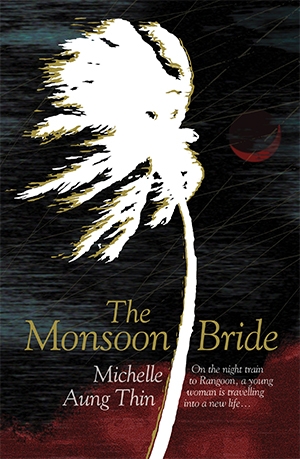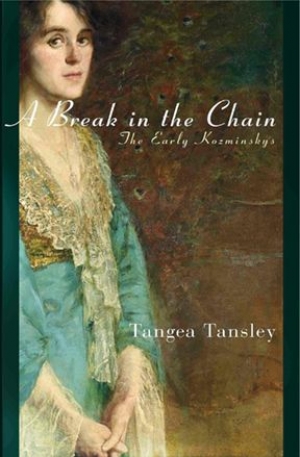Historical Fiction
Francesca Sasnaitis reviews 'The Longing' by Candice Bruce
The Longing is an ambitious first novel. Set in the Western District of Victoria, with parallel narratives in the mid-nineteenth century and the present day, its principal theme is the occupation of Gunditjmara country by white settlers, and the decimation of Indigenous tribes. Novel writing is, of course, an act of imagination, and writers should be commended for their research, tenacity, and inventiveness, but I cannot ignore the social and political implications of this particular story, and cannot help but be alert to the authenticity of its three main voices and the sentiments they express.
... (read more)Carol Middleton reviews 'War & Peace and Sonya' by Judith Armstrong
Judith Armstrong, a Russian and French scholar, has translated the diaries of Tolstoy’s wife, Sonya, to form the focus of her second novel. Armstrong combines an intimate knowledge of Russian literature with a close reading of the couple’s diaries to create a convincing portrait of their volatile relationship through forty-eight years of marriage.
... (read more)The historical novel has always been characterised by a formative tension – the demands of history versus the demands of story. The author is caught between relegating the past to a prettified background, or the characters to merely personified social forces. Michelle Aung Thin’s début novel tends more towards the former than the latter, illustrating both the dangers and the pleasure to be found in negotiating between these poles.
... (read more)Not since Marguerite Yourcenar’s classic Memoirs of Hadrian (1951) have I encountered a novel of such bravura intensity and insight into the jagged contours of the human heart.
Autumn Laing opens with a mercurial soliloquy. Over eighteen shimmering pages, the novel’s eponymous heroine draws scarcely a breath as, in a soul-scouring torre ...
The heroine of All That I Am reflects that an author’s published books ‘preserve the fossil imprint on the world of that particular soul at that particular time’. In her début novel – based on real characters and events – acclaimed non-fiction author Anna Funder (Stasiland, 2003) has preserved the imprint of a particular group of souls at a vitally important historical moment. A beautifully executed blend of historical fiction and psychological thriller, it follows the lives of a London-based network of activist refugees from Hitler’s Germany.
... (read more)Sophie Cunningham reviews 'Sarah Thornhill' by Kate Grenville
Sarah Thornhill is the third book in Kate Grenville’s loose trilogy depicting life in the early days after Australia’s settlement. Like the previous novels, The Secret River (2005) and The Lieutenant (2008), Sarah Thornhill fictionalises actual stories of settlement. In the process, Grenville transforms our history into something immediate and tangible, which gives readers the chance to enter our shared past.
... (read more)In 2003, the year in which Elliot Perlman’s previous novel Seven Types of Ambiguity was published, the eminent gadfly David Marr suggested that Australian novelists failed to address major contemporary social concerns. As if anticipating Marr’s criticisms, Perlman wove a plot that involved stock market speculation (and peculation), upmarket Melbourne brothels, privatised prisons, privately managed health care, downsizing and unemployment in the education sector, the crisis in the humanities, economic rationalism, globalisation. Late-twentieth-century capitalism and its discontents, in short. The novel obviously spoke to the judges of the Miles Franklin Award, who shortlisted it for that pre-eminent, if contentious, prize.
... (read more)Patrick Allington reviews 'Spirit of Progress' by Steven Carroll
At the beginning of Steven Carroll’s new novel, Spirit of Progress, Michael stands on a platform of the Gare Montparnasse in Paris. Readers of Carroll’s ‘Glenroy’ trilogy will remember that Michael is Vic and Rita’s son – a boy who grew up with an unblinking grasp of his parents’ fractured marriage and who learned early to fend for himself. Now a man, Michael observes the foreign trains and reminisces about his father’s love of engine driving. He realises then that his home suburb ‘will always claim him’ and that he has ‘a whole world inside his head … complete and vast, going about its daily life, constantly moving as if alive and still evolving’ (ellipsis in original).
... (read more)Any attempt to write a novel that covers three generations, two centuries, and two continents is undeniably ambitious. Include subject matter that ranges from Jewishness and gemstones to the occult, and set the story in a vibrant and sometimes turbulent time in the history of Melbourne and Victoria, from the 1850s gold rushes to the early 1900s, and the possibilities are exciting. Whether A ...
Sophie Cunningham reviews 'Caleb's Crossing' by Geraldine Brooks
Geraldine Brooks has an extraordinary radar for a good story, a curiosity that has carried her, and her readers, from Year of Wonders (2001), set during England’s plague of 1666; to March andthe American Civil War; to medieval Spain and the People of the Book (2008).Her latest novel, Caleb’s Crossing, is set closer to the place Brooks calls home – in th ...









